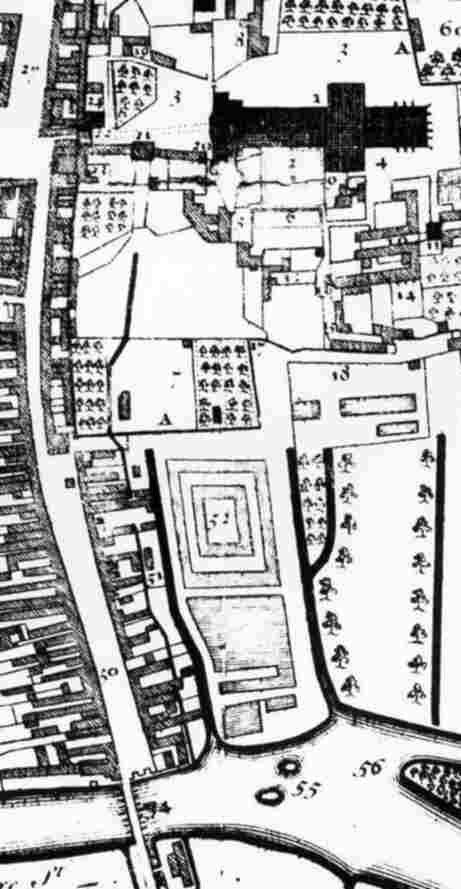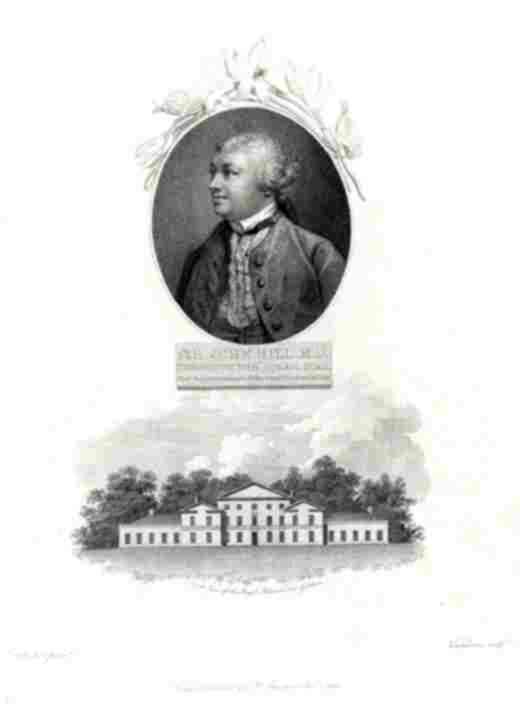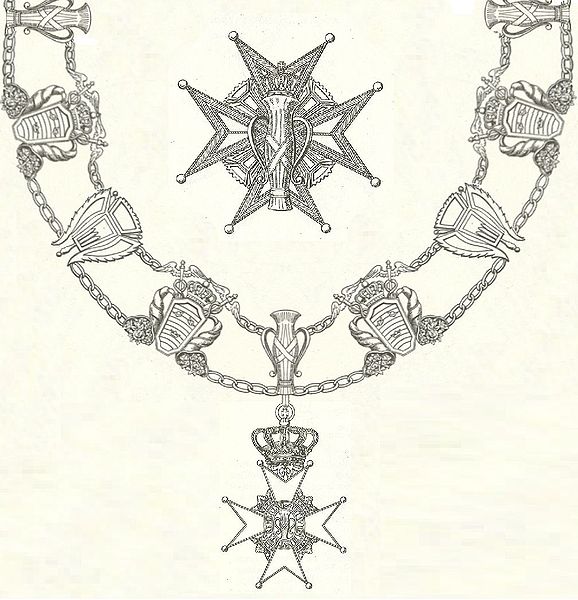
Many articles have been published or placed on the internet concerning John Hill, one of the most famous apothecaries of the 18th century. Over four pages are taken up in the Dictionary of National Biography on his life and works which mentions over 76 of his separate works. Academics have searched in vain to find where this very clever man was first educated. The facts have just been published 'Theophilus Hill Apothecary and his Son Sir John'.
Theophilus gained an MB at St. Peter’s Cambridge in 1705 and his first son Theophilus, an MA at Emmanuel Cambridge in1725. Most of John Hill’s medical knowledge came from his father who was the Peterborough Cathedral apothecary and master at ‘King’s, a school then in its precincts.
It was while researching the life and works of the prolific Peterborough bellfounder Henry Penn that the writer was introduced in a most unlikely way to Theophilus Hill MB, a minor canon at Peterborough Cathedral between 1709 and 1728. An advert in the Stamford Mercury dated 1716-
We hereby Witnefs, That Henry Penn, Bell-Founder of Peterborough in Northamptonfhire, fits Rupture’d People of both Sexes, and all Ages, with Steel Truffes, and has Applications, internal as well as external for the Cure of even the moft Dsfperate Cases of that Nature. Signed
Theop Hill M.B. Sam Pendleton, Phyfician Alex Stuart Chirurg.

Theophilus Hill's herb gardens were in the Cathedral precincts. The map left shows Peterborough Cathedral (4) with the Bishops Gardens just below. From this point right up to the River Nene (55-56) were the vegetable and herb gardens. Bridge Street can be seen running north-south, top to bottom.
John Hill worked under his father and by the time he was thirteen gained a good foundation for his future. The apothecary was the ancestor of the modern GP (general practitioner). In England at this time individuals selling wine, spices and herbs were known as apothecaries. They prepared and sold medicines to physicians and directly to patients. In addition they offered medical advice and other products.
Some items came to light in a most unusual way. Penn was involved in a long court case between St. Ives Parish church in Huntingdonshire 1722. St. Ives said the new bells were not in tune. Theop Hill acted as a witness for Penn and certain facts come to light from parts of his statement
Theophilus Hill Late of Peterborough now of Denham Bucks. Back Physick age 46 and over. Deponent heard the new bells and found them in tune. Deponent is a master of music but not teaching and is able to tune harpsichords, spinets and violins. P.R.O. C41/44.Trin. No 2191-1729. Henry Penn v James Fisher and Isaac Jones.
The case was eventually found in favour of Penn. Peterborough Cathedral records give more details of Theophilus senior. He was master at ‘King’s’ the Cathedral School in 1709 and his son Theophilus took over his position in 1727-8, being about 22 years of age. The records also give some details of the pupils in1726, one of which is his son 12 year old son John who later becomes the famous apothecary, Sir John Hill. Another is 12 year old Henry Penn junior, son of Henry Penn bellfounder, who eventually becomes a vintner in London*. *N.R.O 1722 Deeds of Henry Penn’s House. Henry must have been very popular with the class. One can imagine the interest taken in the casting of bells, as the foundry very near to the school. Both boys left 'Kings' about 1728.

Engraving of
SIR JOHN HILL KNIGHT OF THE POLAR STAR
First Superintendent of the Royal Gardens at Kew.
Francis Coates R.A. Giovanni Vendramini sculpt London,
Published Dr. Thornton, 1 November 1799.
Below the portrait.
A View of the Royal Palace in Kew Gardens.
The flower above his head is a spray of a species of Hillia, named in honour of Hill by Nikolaus Joseph Freiherr von Jacquin (1727 1817) a scientist who studied medicine, chemistry and botany in the Netherlands.

The Royal Order of Vasa was awarded to John Hill. A Swedish Royal order of chivalry, an award normally given to citizens of Sweden for service to state and society especially in the fields of agriculture, mining and commerce. It was instituted on 29 May 1772 by King Gustav III of Sweden, unrestricted by birth or education, and could therefore be awarded to anyone (as opposed to the Order of the Polar Star*, which was intended as a reward for the learned professions).
Sir John Hill MD. Knight of the Polar Star. This is a little confusing. The portrait may have been printed after his death. The details given by his widow.